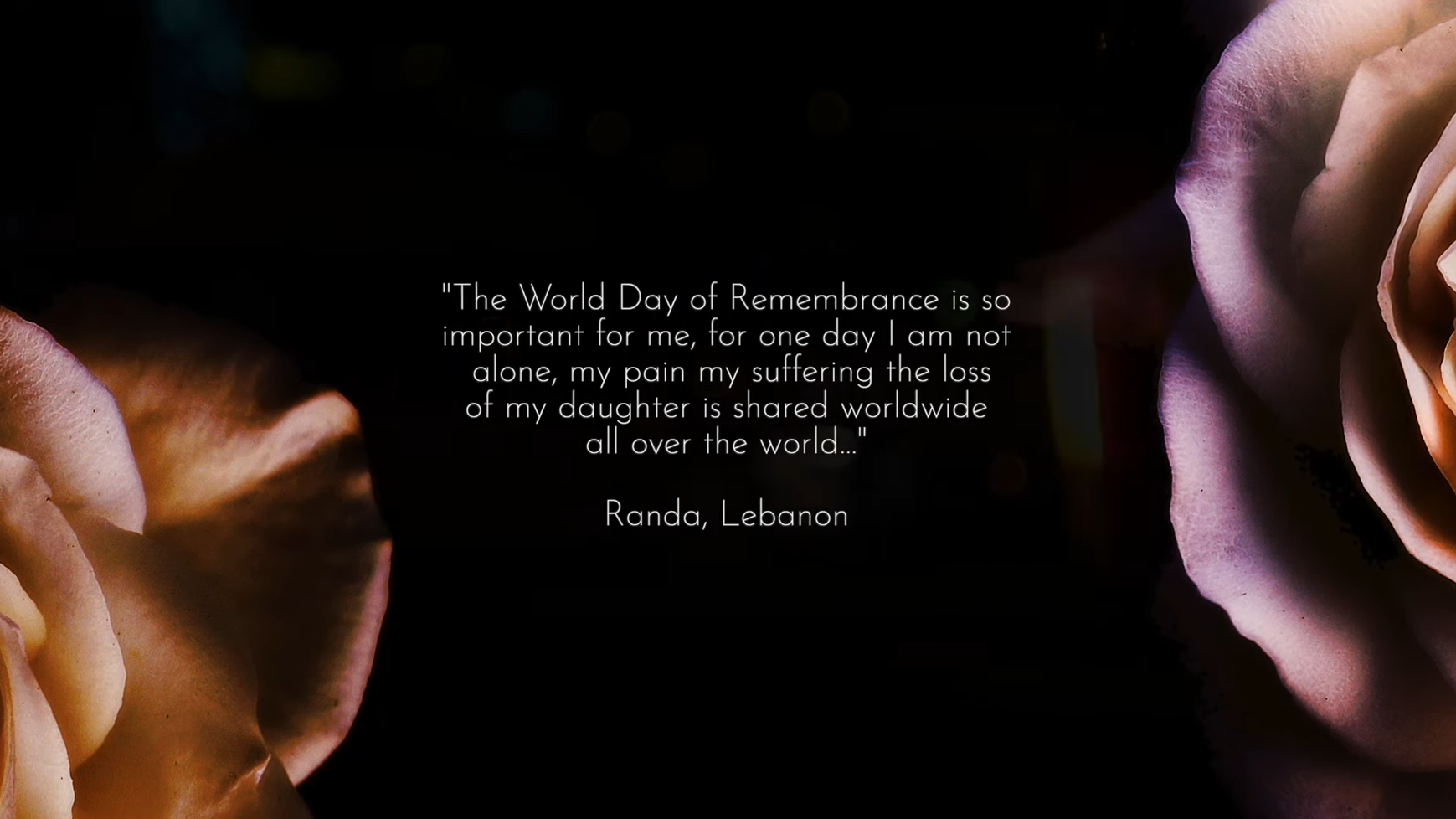
On 18 November 2022, WHO held an online global commemoration for World Day of Remembrance for Road Traffic Victims featuring testimonies on the theme of Remember, Support, Act. Among those telling their personal stories were Alliance members Donna Price, International Road Victims Partnership and Irish Road Victims Association, and Monica Dongban Mensem, Keep Roads Safe Demand Trust, alongside messages from Tedros Adhanom Ghebreyesus, Director-General, WHO, and Jean Todt, UN Special Envoy for Road Safety. The Alliance’s Valeria Motta and Global Youth Coalition representative Deepanshu Gupta also spoke. The event was hosted by Etienne Krug, WHO.
Watch the full event here:
Below is Valeria’s speech, presenting a civil society call for action.
Good morning, good afternoon.
My name is Valeria Motta, and I´m the Director of Advocacy and Partnerships at the Global Alliance of NGOs for Road Safety. I am here to represent the many civil society organizations and advocates around the globe who are working for a better world where every person is guaranteed the right to safe, affordable, accessible, and sustainable mobility. I wish to thank Dr. Etienne Krug, and the WHO team, not only for hosting this event and gathering the road safety community but also for their role in advising and convening national governments to make roads safe for every person.
Today, for the World Day of Remembrance for Road Traffic Victims, we have listened to true champions, tireless advocates that are convinced that a better future is possible. We thank them for sharing their powerful stories to remind us of what is at stake: why we must act urgently.
The Global Plan for the Decade of Action for Road Safety gives us a framework for that action. It reminds us, as today’s speakers have, that people must be at the center of our mobility systems to halve road deaths and injuries. To achieve this we must ACT by implementing interventions that work, recognize that safe mobility is a right and hold governments accountable to make roads safe.
The first year of the Global Plan has shown us some concrete examples on how to move forward, putting people and their journeys at the center of what we do. Whether through municipalities transforming their public transport systems, like in Jalisco, Mexico, or the implementation of 30km/h limits, footpaths, and other interventions that make our streets safer, healthier, and more livable. Through NGOs in India and beyond that are bringing community voices and data to show transport officials what needs to be done, or young people, such as in Nigeria, who are beginning to see their voices being heard within government forums, we have seen how the different actors have a part to play.
Now we must step up and scale up to ensure that every person’s right to safe mobility is guaranteed, regardless of where they live or what their gender, race, age, or background is. We cannot continue business as usual; We need to think differently – recognizing that mobility is not a standalone issue: it connects everything.
National and city governments must base their policy making, budget allocation, implementation, and enforcement, on the evidence of what we know keeps people safe on their daily journeys. We need academia to bring forward that evidence to base all this on. We need youth to bring forward the experiences of the generation who will inherit our mobility systems and who already pay the highest price for its deficiencies. The private sector has a considerable influence and must build safety throughout their interactions with employees, customers, and the wider community. Civil society brings forward the voices often overlooked and underepresented communities and groups. We call on NGOs to amplify those voices and to hold governments accountable to make our roads safe for all.
By making our mobility systems safe, we will do even more than save lives. Safe mobility ensures that our children can access education, that our neighbors can commute to work, that every person can access the choices that enable them to achieve their maximum potential, leaving no one behind. It is fundamental to any thriving society.
This will only happen when we all take up our assigned roles and when we make ourselves accountable for doing what we say we will, taking stock periodically of what we have done and what we must do next to achieve a truly safe mobility system. The World Day of Remembrance gives us a great platform to remember, support and act.
There are just 2,964 days until the end of the Decade of Action. This is how we will make safe mobility a human right.